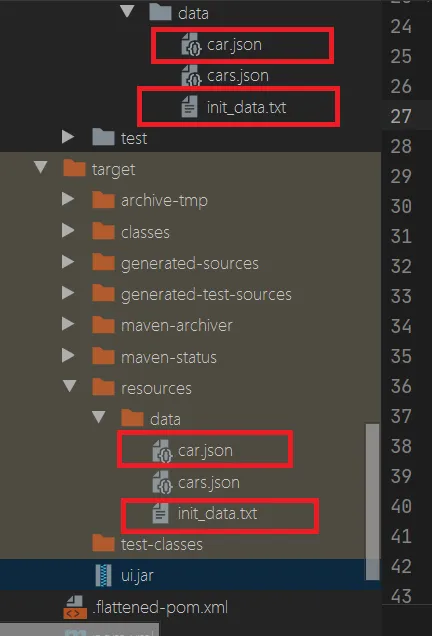我现在正在学习Maven。我在应用程序的资源文件夹中读取JSON文件时遇到了问题。我收到了一个错误消息“系统找不到该文件”。更有趣的是,当我尝试读取txt文件时没有问题......
如下图所示,这两个文件在我的应用程序中处于相同的位置。为什么我的json文件不能正确读取?
//WORKING
String filename = "./resources/data/init_data.txt";
try (Stream<String> lines = Files.lines(Paths.get(filename))){
lines.forEach(System.out::println);
} catch (Exception e){
e.printStackTrace();
}
//NOT WORKING
Gson gson = new Gson();
filename = "./resources/data/car.json";
try (Reader reader = new FileReader(filename)){
Car car3 = gson.fromJson(reader,Car.class);
System.out.println(car3);
} catch (IOException e){
e.printStackTrace();
}


String name = joProvince.get("name").toString()the right way isjoProvince.get("name").getAsString()- hatanooh